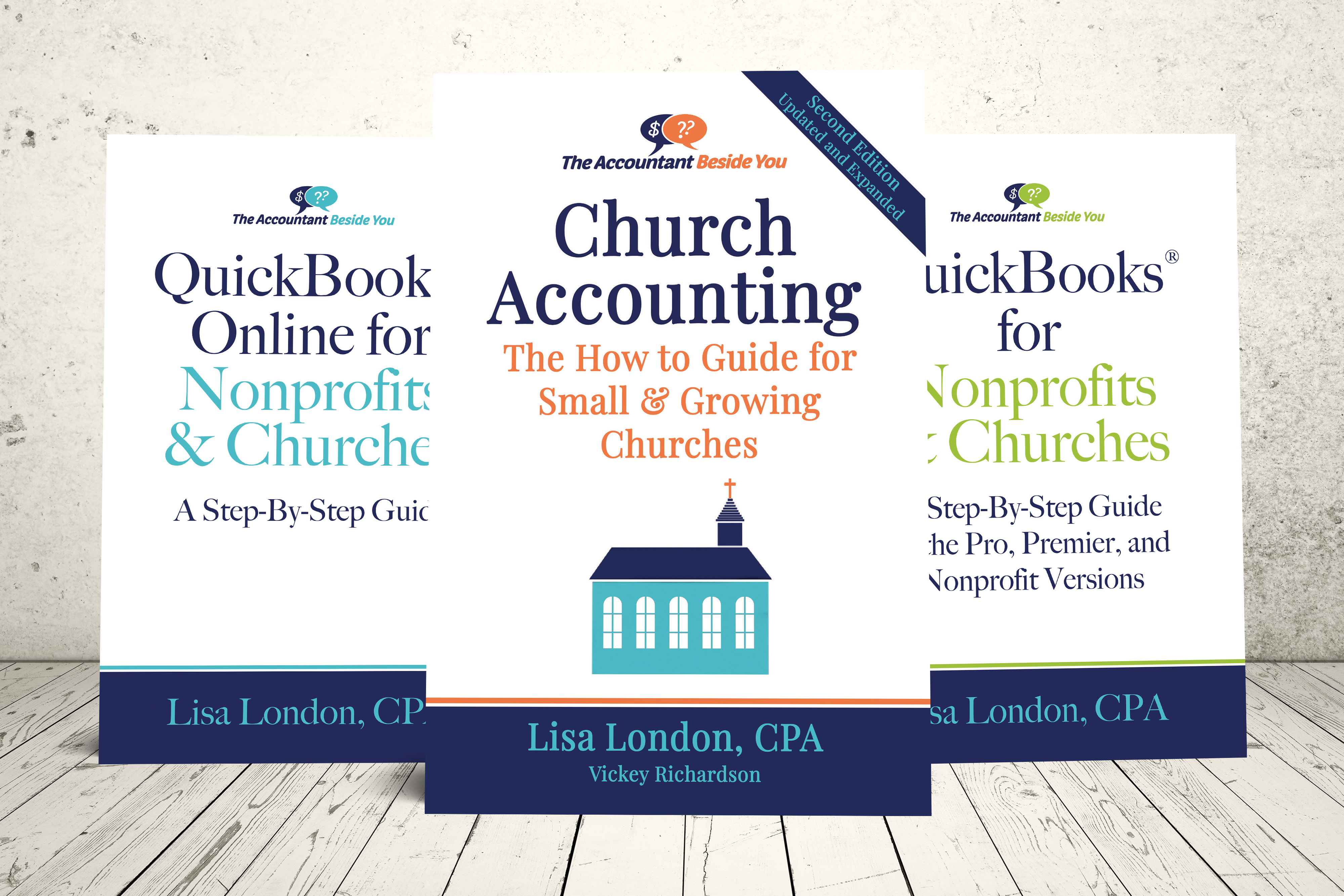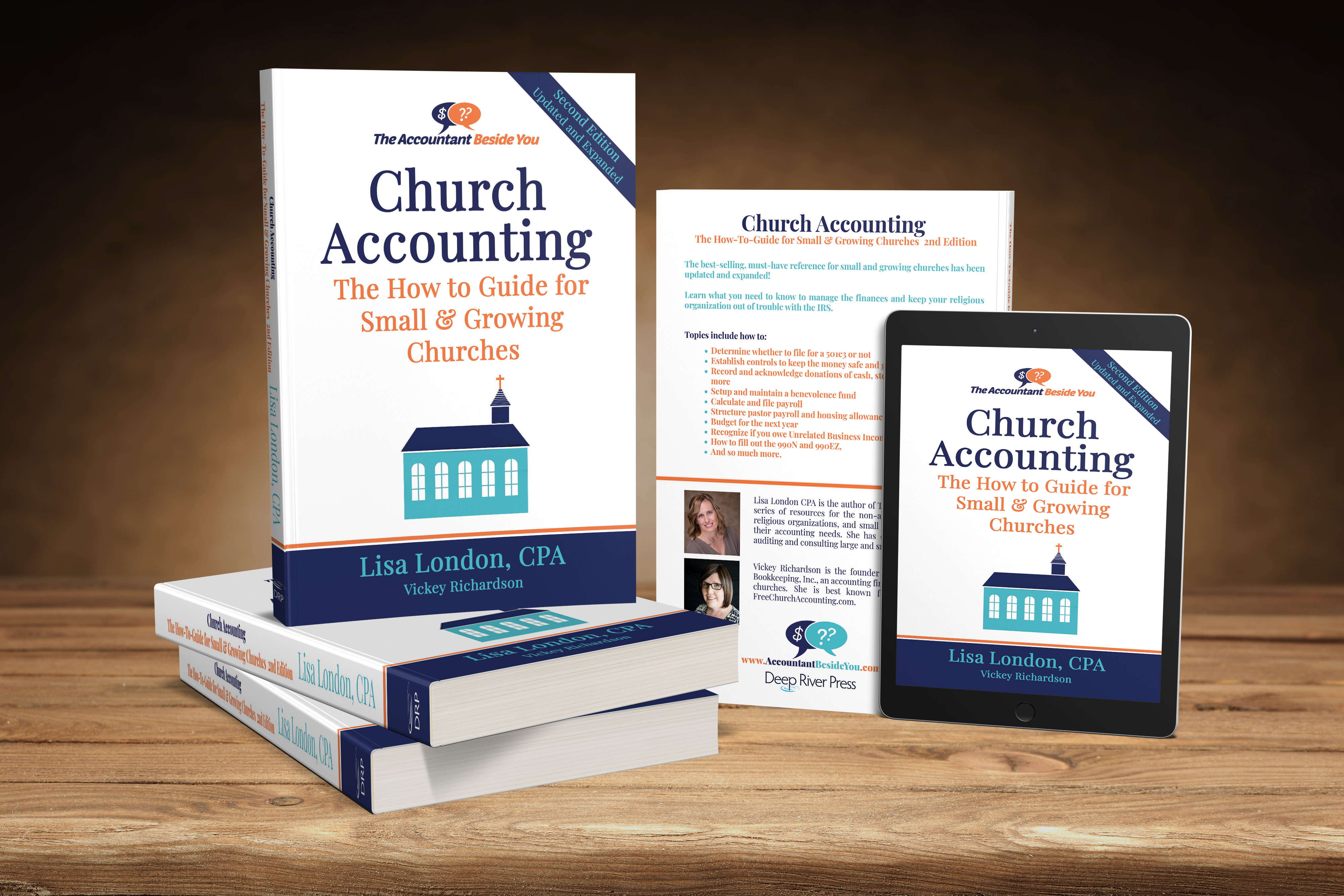Church Staff Financial Responsibilities
Working for a church is very rewarding! The compensation plan is out of this world.
However, it is important for your volunteer or paid church staff to understand exactly what is expected of them.
Their duties and financial responsibilities should be clearly outlined in a written policy handbook and/or your church's policy and procedures book.
Outline of Financial Responsibilities
Proper handling of money is important to churches of all sizes.
Internal accounting controls are essential in properly managing and caring for God’s resources.
If at all possible, the responsibilities and roles of your financial administration should be in writing, such as position descriptions.
Outlined below are some of the financial responsibilities that you might delegate to the staff at your church:
Counting Committee
Requires at least two unrelated persons to serve as the Counting Committee.
- Prepares a collection report, including a list of all checks received
- Verifies that the amount written on the offering envelopes matches the contents of the envelopes and all checks are restrictively endorsed
- Signs and dates collection report verifying everything recorded is correct
Financial Secretary / Administrative Assistant
This How To Book for Churches is packed full of tips for:
- setting up internal controls,
- cash out-controls for debit/credit cards
- setting up an effective fund accounting system,
- handling and tracking contributions,
- setting up compensations for a minister,
- handling a payroll for a church
- preparing nonprofit financial statements,
- and much more.
- To work according to the guidelines established by the church
- Supervise the Counting Committee
- Records the contributions to each family’s contribution record
- Prepares journal entries and post them to the general ledger
- Deposits the funds in the bank in a timely fashion
These roles and financial responsibilities are a guide only.
Each church is unique and needs to outline which duties each staff member will have.
Just remember...the individuals counting the offering should not record the contributions.
The person writing checks should not reconcile the bank statement and the person reviewing the bank statement should not have any access to the funds.
Here are some additional duties and responsibilities a church secretary or staff accountant might have:
- Process all checks, recording them in the appropriate accounting software program
- Signs checks
- Insure that computer files are backed up weekly, at a minimum monthly, and the back-ups are stored off premises
- Supervise daily cash balances to insure sufficient funds are maintained
- Maintains filing system and storage system for all financial records and banking records
- Maintain
historical data, and establish a retention system for old financial
records in accordance with government requirements
Church Accounting Package
A set of 4 ebooks that covers the following topics...
- Fund Accounting Examples and Explanations
- Setting up a fund accounting system
- Donation management
- Minister compensation and taxes
- Internal controls and staff reimbursements
- Much more - Click here for details

Treasurer
Some duties a Treasurer may be assigned:
- To work according to the guidelines established by the church
- Perform bank reconciliation each month in a timely fashion
- Verify that all checks have been properly signed
- Verify that the bank balance reconciles to the bookkeeping records
- Verifies that the beginning balance equals the ending balance of the previous month both in the checking account and the general ledger
- Signs and dates the reconciliation report
- Process all payroll checks, Tax Form 941’s, W-2’s and other government records required in a timely fashion
- Prepares the monthly and annual finance report
- Files all the required federal, state, and local tax forms
- Assists in the preparation of the annual budget
- Prepares records for annual audit
Confidentiality of Information
It is very important that anyone who has access to the contribution records of individual donors keep this information strictly confidential. Try to keep the number of people with access to individuals' contribution records to a minimum.







